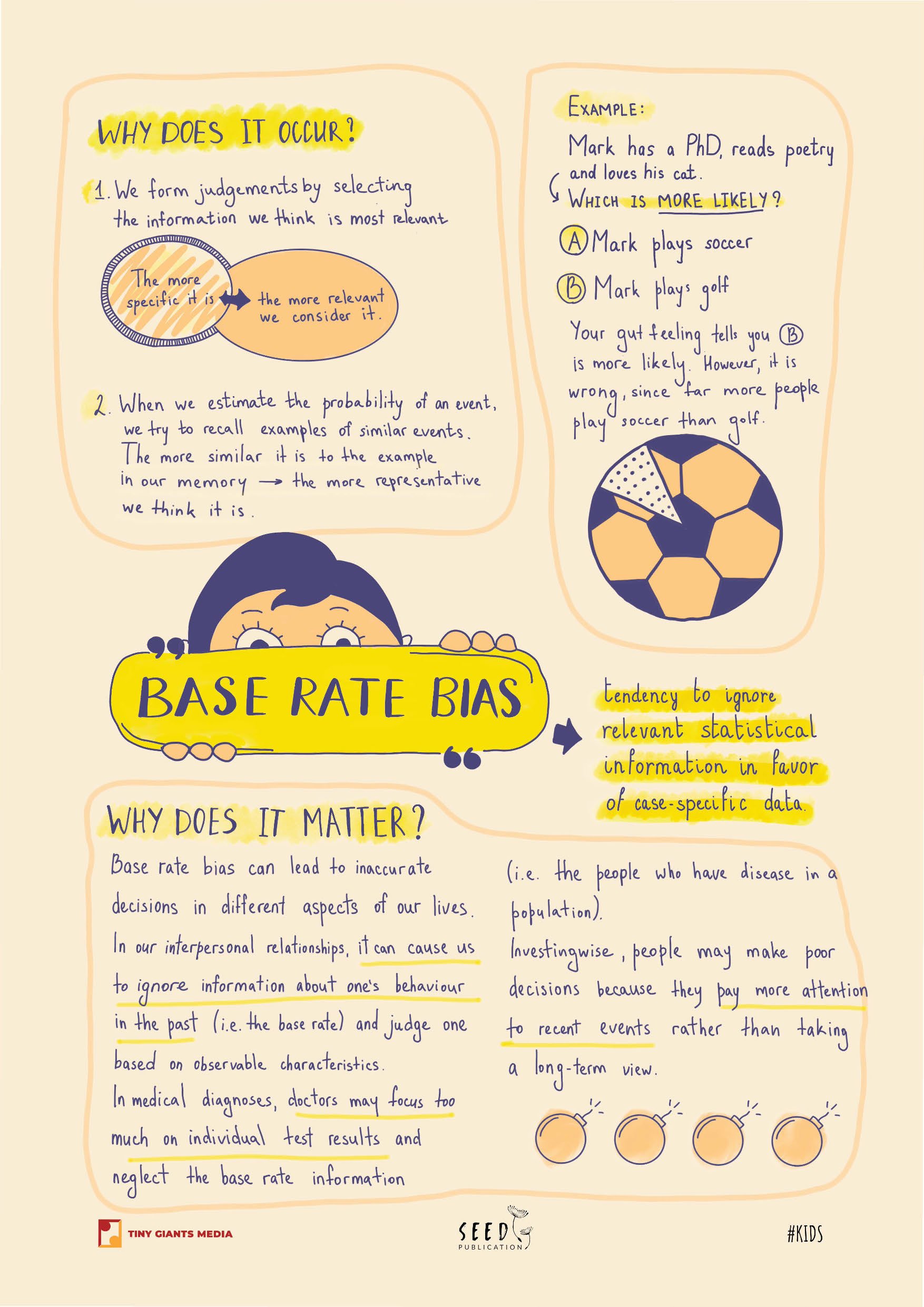Base rate bias.

Tendency to ignore relevant statistical information in favor of case-specific data.
Example:
Mark has a PhD, reads poetry and loves his cat.
Which is more likely?
Mark plays soccer
Mark plays golf
Your gut feeling tells you Mark likely plays golf. However, it is wrong, since far more people play soccer than golf.
Why does it occur?
1. We form judgements by selecting the information we think is most relevant.
The more specific it is - the more relevant we consider it to be,
2. When we estimate the probability of an event, we try to recall examples of similar events. The more similar it is to the example in our memory - the more representative we think it is.
Why does it matter?
Base rate bias can lead to inaccurate decisions in different aspects of our lives. In our interpersonal relationships, it can cause us to ignore information about one;s behaviour in th epast (i.e. the base rate) and judge one based on observable characteristics.
In medical diagnoses, doctors may focus too much on individual test results and neglect the base rate information (i.e. the people who have disease in a population).
Investingwise, people may make poor decisions because they pay more attention to recent events rather than taking a long-term view.

More like that:

Natural emotion gone bad and how to detect it.
Chinese Fairy Tales and Fantasies.
A story from a Japanese folktale collection.
An old story about anger and self-control.




























